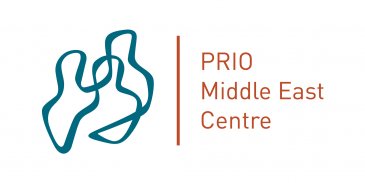 In a series of brief blog posts, researchers of the PRIO Middle East Centre offer their reflections on the unfolding Israeli-Palestinian Conflict.
In a series of brief blog posts, researchers of the PRIO Middle East Centre offer their reflections on the unfolding Israeli-Palestinian Conflict.
The conflict in Gaza has once again highlighted the tense relationship between Turkey and the United States with President Erdoğan using incendiary language in his criticism of Israel and its strongest ally, the United States.
Never one to miss an opportunity to profile Turkey’s ambitions to regional power status, Erdoğan’s engagement with the most recent Israeli-Palestinian violence follows a pattern of interventions in Syria, Libya and further afield (in the Armenia/Azerbaijan conflict).
In this instance, the Turkish response is markedly, and purposefully, different from that of other would-be regional powers such as Saudi Arabia and the United Arab Emirates who have tempered their response to suit the geopolitical shifts in the Arab world brought on by the 2020 Abraham Accords.
In an increasingly souring economic climate brought on in part over geopolitical uncertainty, Turkey had recently made tenuous efforts to mend regional ties with Egypt, Saudi Arabia and the UAE and if not explicitly, then by extension, also with the United States.
There has been much discussion of a “reset” in Turkish-American relations after the Biden administration came to power. This seems to be lost in the present outbursts against Israel and the United States where Erdoğan’s eye is on mobilising his nationalist supporters, referring to the need to defend “places where people lived peacefully under the umbrella of justice and security of our ancestors.”
Furthermore, by invoking the religious dimension of the conflict – the Turkish Directorate of Religious Affairs held an emergency meeting on Jerusalem at Erdoğan’s behest – the AKP targets young Muslim conservative voters who have been estranged by the direction of the AKP.
These voters present a challenge for the 2023 elections in which they are being courted by alternative candidates from the same ideological camp. The AKP is thus served politically with using the Palestinian cause in the defense of Muslims against what Presidential spokesperson Fahrettin Altun refers to as the “apartheid regime in its repression of innocent people in occupied territories”. Aggressive nationalism has often been a tactic to rally the voters in the leadup to important political elections. However, Erdoğan may be betting on the wrong horse, leveraging a short-term polemical gain rather than remaining cautious in his response and thus facilitating a longer turn shift to bring Turkey out of regional isolation and recovering confidence in the economy.
But perhaps what is most striking in the Turkish response is its contrast to the Arab response in the wider MENA region. While the “Arab street” has had citizens protesting Israel’s assault on Gaza, particularly in Jordan and Iraq, this contrasts with the muted official responses of the United Arab Emirates, Bahrain, Morocco and Sudan, who have all moved towards normalising ties with Israel.
In these regimes, the Palestinian issue is creating discord between the Arab state and the “Arab street”. And while physical protests in the street may be more muted, the online protest has had an impact beyond the region, going global by channelling the narratives of the Black Lives Matter movement, once again emphasising the powerful role that social media can play in fomenting protest a decade after the Arab Spring.
Ten years on, the focus on marginalised communities has become mainstream and global, making the Palestinian issue ripe for social protest. In sum, while regional regimes may be wary of sacrificing burgeoning geopolitical agendas, Arab populations are aligning with progressive global movements in defining the Palestinian narrative. Seen through these lenses, Erdoğan’s wrath may be useful as an instrument of “soft power” projection.